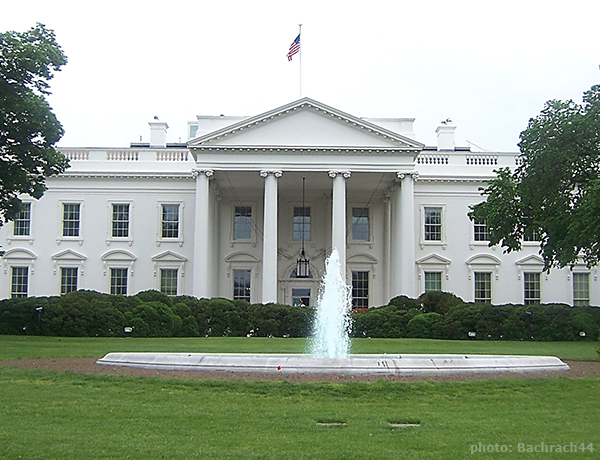White House Conference Echoes Caregiving Needs and Challenges
 The White House Conference on Aging, held once per decade since the 1960s, took place on July 13. A chief focus of this decade’s conference was meeting elders’ caregiving needs, featuring thought leaders such as author and caregiver advocate Ai-Jen Poo. Of the millions of seniors who receive assistance with their care, only about one in seven lives in a full-time care facility; the rest rely on periodic visits from home care providers and/or voluntary caregivers such as relatives. Although the need for professional caregiving is climbing, the high turnover rate in this field continues to leave a shortage.
The White House Conference on Aging, held once per decade since the 1960s, took place on July 13. A chief focus of this decade’s conference was meeting elders’ caregiving needs, featuring thought leaders such as author and caregiver advocate Ai-Jen Poo. Of the millions of seniors who receive assistance with their care, only about one in seven lives in a full-time care facility; the rest rely on periodic visits from home care providers and/or voluntary caregivers such as relatives. Although the need for professional caregiving is climbing, the high turnover rate in this field continues to leave a shortage.
The conference also ventured into topics such as the scarcity of resources for unpaid, voluntary caregivers. The importance of respite care as a strategy to support caregiver health and avoid burnout was discussed, as was the organizational difficulty of coordinating local and community elder services among different providers.
(White House Tackles Aging Amid Booming Market For Long-Term Care; Forbes)
Unhealthy Dining/Healthier Hydration
Fast food has long been vilified for being unhealthy, but recent research suggests that dining out at a sit-down restaurant poses some of the same nutritional pitfalls. Many restaurant diners were found to consume sodium and fat in amounts comparable to fast food meals; what’s more, diners in restaurants are likely to eat more overall, raising their calorie counts even higher. This surprising comparison gives weight to the forthcoming requirements for chain restaurants to provide nutrition information on their menus.
(Why Sit-Down Meals May Be Just As Unhealthful As Fast Food; NPR)
Beyond emphasizing water intake, official guidelines for what and how much to drink each day have historically been lacking. Now, a research team has developed the Healthy Beverage Index (HBI), akin to the existing Healthy Eating Index. In the HBI, users receive a score from 0 to 100 based on several factors, including type, amount, and frequency of their beverage choices; higher scores were found to correspond with lower health risks. The index could be developed into an easy assessment tool to guide patients toward better liquid nutrition.
(Nutrition researchers develop the healthy beverage index; MNT)
Internet Diagnosis: Accuracy Not Guaranteed
The Internet can serve as a helpful resource to learn about potential risks, symptoms, and treatments. However, when it comes to assessing your specific symptoms and taking action, recent research found that online ‘symptom checkers’ pointed to the correct diagnosis less than half of the time. Tools that avoided naming specific diagnoses (and instead recommended whether to seek care) were more accurate at identifying when to get emergency treatment. In any case, it’s best to take information found online as a guideline or possibility at best — it’s no substitute for a doctor’s expert assessment and advice.
(Online Symptom Checkers Can’t Replace The Real-Life Doc Just Yet; NPR)
Other News
- Expedited review and early approval — this new drug for treating heart failure is expected to make a big entrance. (Novartis wins early U.S. approval for major new heart drug; Reuters)
- The risk of death from prostate cancer is relatively low. As recommendations have turned away from aggressive screening and treatment, the observed increase in ‘watchful waiting’ meets with researchers’ approval. (More men with prostate cancer are opting for surveillance; Reuters)
- Guidelines have changed for who is recommended to take cholesterol-lowering drugs. Two recent JAMA articles verify that the new guidelines based on risk are better at identifying those patients who will benefit most. (When To Start Taking A Cholesterol Pill? The Decision Is Yours; NPR)
- The title specifies long-distance caregiving, but the advice is good whether you’re several states away or just around the corner. (Looking after elderly parents when they’re far away: Preparation is important; Bankrate)
- Lasers: Is there anything they can’t do? (Breath analysis by laser ‘could one day screen for diabetes, cancer’; MNT)
- Once again, lasers. Specifically, laser blood glucose testing. (Non-invasive device could end daily finger pricking for people with diabetes; MNT)
- While admittedly not a laser, here’s another exciting noninvasive advance — this one toward faster wound healing. (Ultrasound accelerates skin healing — especially for diabetics and the elderly; MNT)
- Physical activity is beneficial for management of many chronic conditions. In a small study of patients with chronic lung disease, the ‘rollator’ type of rolling walker helped them walk for the longest amount of time. (Rolling walkers ease outdoor walks for lung disease patients; Reuters)

